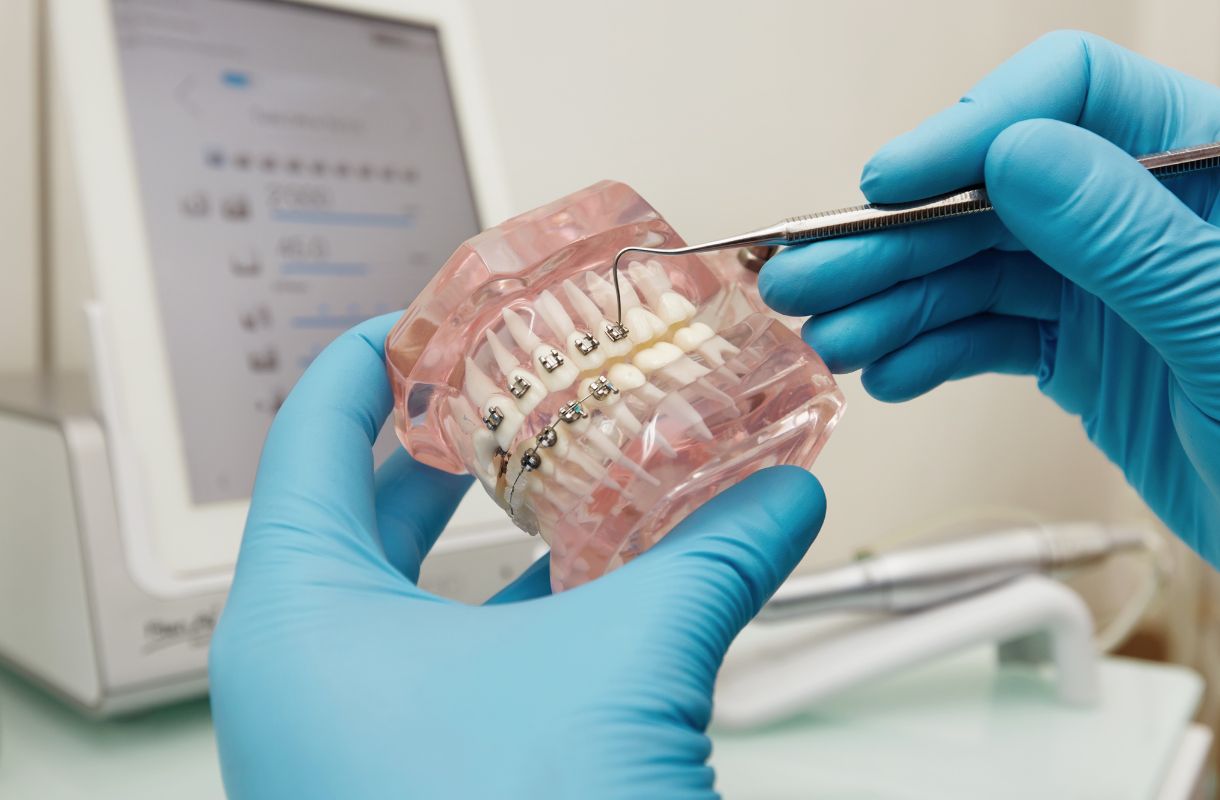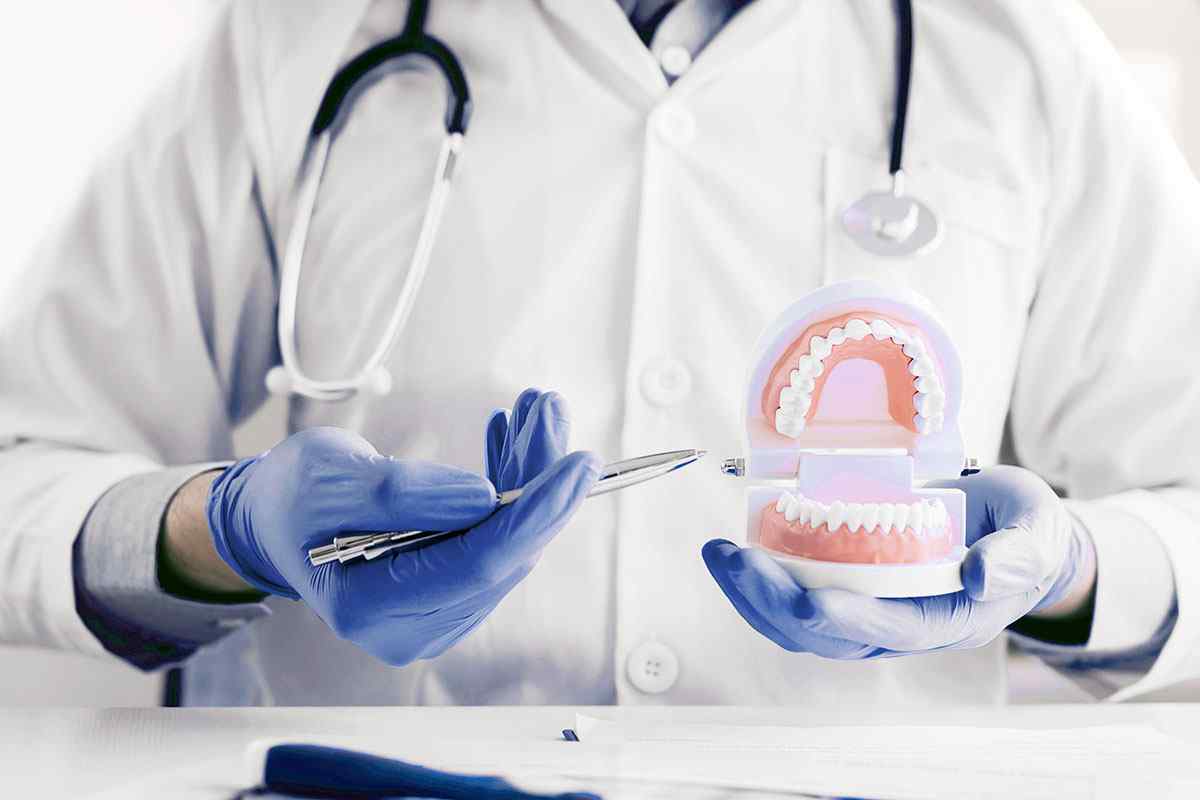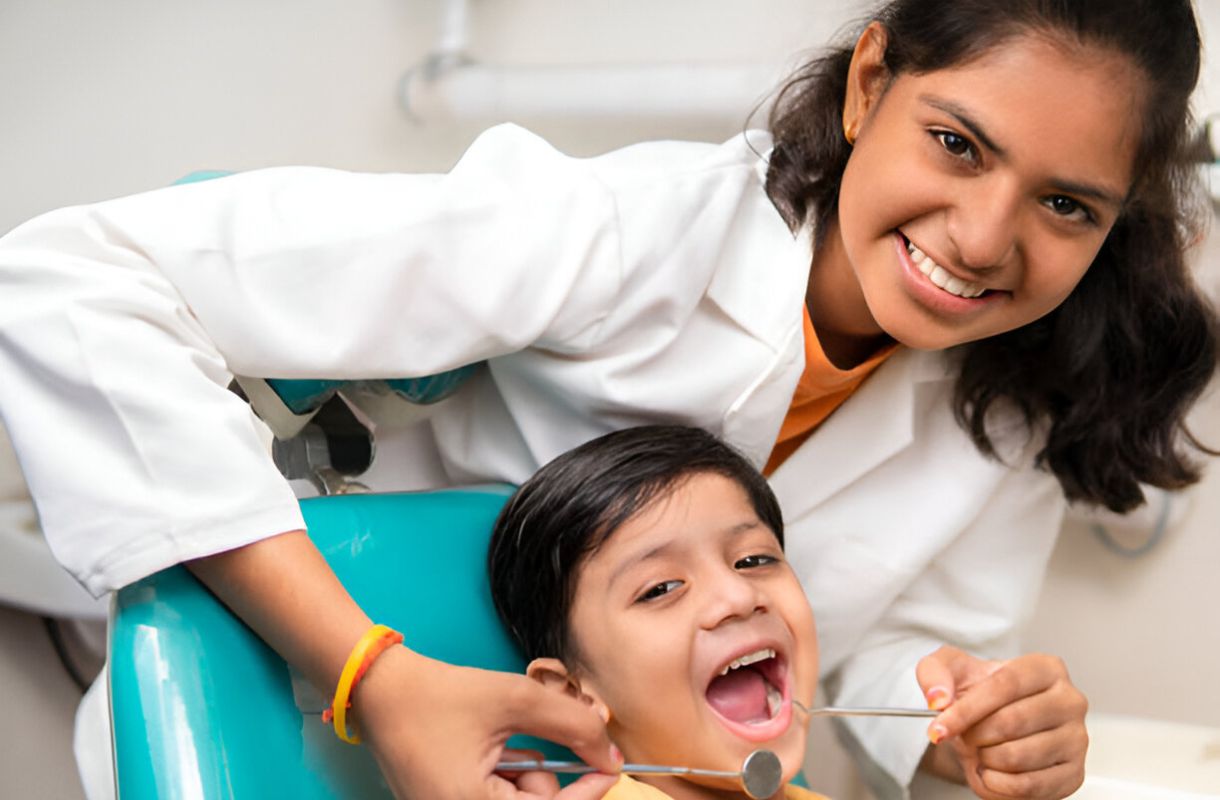What is a
Dental Laser?
A dental laser is an instrument that emits a focused, intense beam of light directed at the tissue to be treated in order to remove or shape it.
Lasers used in dentistry can be classified based on application (hard or soft tissue), medium of use (gas or solid), or by the range of wavelength used (short or long). Soft tissue lasers are used for procedures involving soft tissues in the mouth, like gums, while hard tissue lasers are used to cut hard tissues in the mouth, such as teeth and bone.
To the dentist, laser technology has considerably simplified and improved patient treatment by vaporizing diseased tissue, killing the bacteria that causes the disease, and making it sterile.
Laser treatments cause less trauma and injury to teeth and gums compared to traditional procedures. Our dentists at Smiline Dental Hospital use dental lasers safely and effectively in several procedures.
Application of Lasers in Dentistry
- Repair worn down fillings and damaged teeth without the need for anesthetic injections, especially useful in children with a fear of needles.
- Instantly relieve the discomfort of cold sores and fever blisters.
- Prepare access cavities and disinfect root canals effectively, removing bacteria and cleaning the root canals.
- Treat symptoms of periodontal disease like bleeding gums and gum recession by removing debris between teeth and gums, saving the teeth.
- Treat inflamed gums and other soft tissue in the mouth safely and comfortably.
- Improve the smile and make it attractive by lightning or gum depigmentation. Crown lengthening procedures involve removing and reshaping bone and gum tissue.
- Minimize antibiotic usage after tooth extraction by using lasers to sterilize the socket, which is highly beneficial in patients with diabetes.
- Limit any medical risk in cardiac patients due to the discontinuation of anticoagulant therapy. Medications can be continued under laser treatments.
- Help remove the soft tissue attachments in a tongue tie that can restrict tongue movements.
- Speed up the in-office tooth whitening process significantly.
- Remove soft tissue growths like papillae, fibromas in the oral cavity, or any excess tissue over an unerupted tooth or wisdom tooth.
- Remove small amounts of decayed tooth structure while preserving healthy enamel and dentin.
- Prepare tooth enamel for composite bonding treatments.
- Treat multiple problem areas in the mouth in a single appointment, drastically reducing chair time and making patients more comfortable.
The following table provides the advantages and disadvantages of Laser treatment:
Advantages |
Disadvantages |
| No Heat, Vibration, or Pressure: Uses laser energy and a gentle spray of water; minimal or no anesthetic needed. | Potential Harm: Laser beams can cause burns to the retina; protective eyewear required for everyone in the treatment room. |
| Comfortable Experience: Absence of noise and vibration keeps patients relaxed and calm. | Cost: Laser equipment can be an expensive investment for the dentist. |
| Time-Saving: Multiple procedures can be performed in a single appointment, benefiting both patient and dentist. | Qualified Use: Requires dentists to be specifically trained in using the particular laser device. |
| Precise Treatment: Removes only caries-affected areas, preserving healthy tooth structure. | Limited Applications: Cannot be used for filling proximal cavities, removing defective crowns or silver fillings, or preparing teeth for bridges. |
| Minimal Blood Loss: Hemostatic, resulting in minimal bleeding. | |
| Reduced Postoperative Issues: Causes less swelling, scarring, and pain, sterilizes the treatment site, and allows for quicker recovery. | |
| Decreased Caries Activity: Believed to reduce the activity of caries in the enamel. | |
| No Sutures Required: Wound closure with dressing and sutures is not necessary. | |
| Medically Compromised Patients: Beneficial due to a reduced chance of infection. | |
| Prevention and Treatment of Sensitivity: Helps in reducing dentinal sensitivity. | |
| Analgesic Effect: Can induce an analgesic effect in certain restorations, reducing the need for anesthesia, and can alleviate temporomandibular joint pain. |
Get In Touch With Us
Call us
+91 9676100045 - Punjagutta
+91 7702425551 - Hitech City
+91 7702425551 - Hitech City
Email us
reception@smiline.com
Book An Appointment
Book a visit to Smiline, simply fill out the form below and we will contact you back regarding the intervention you require.



